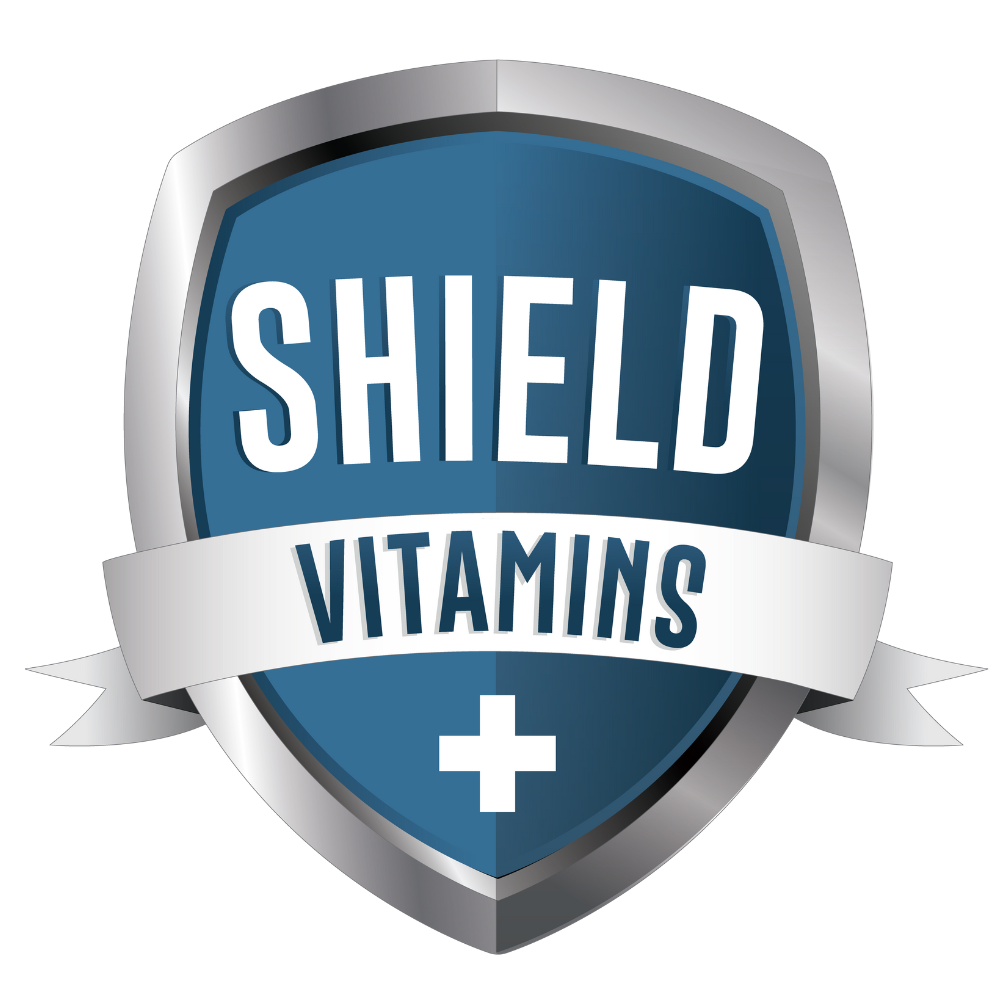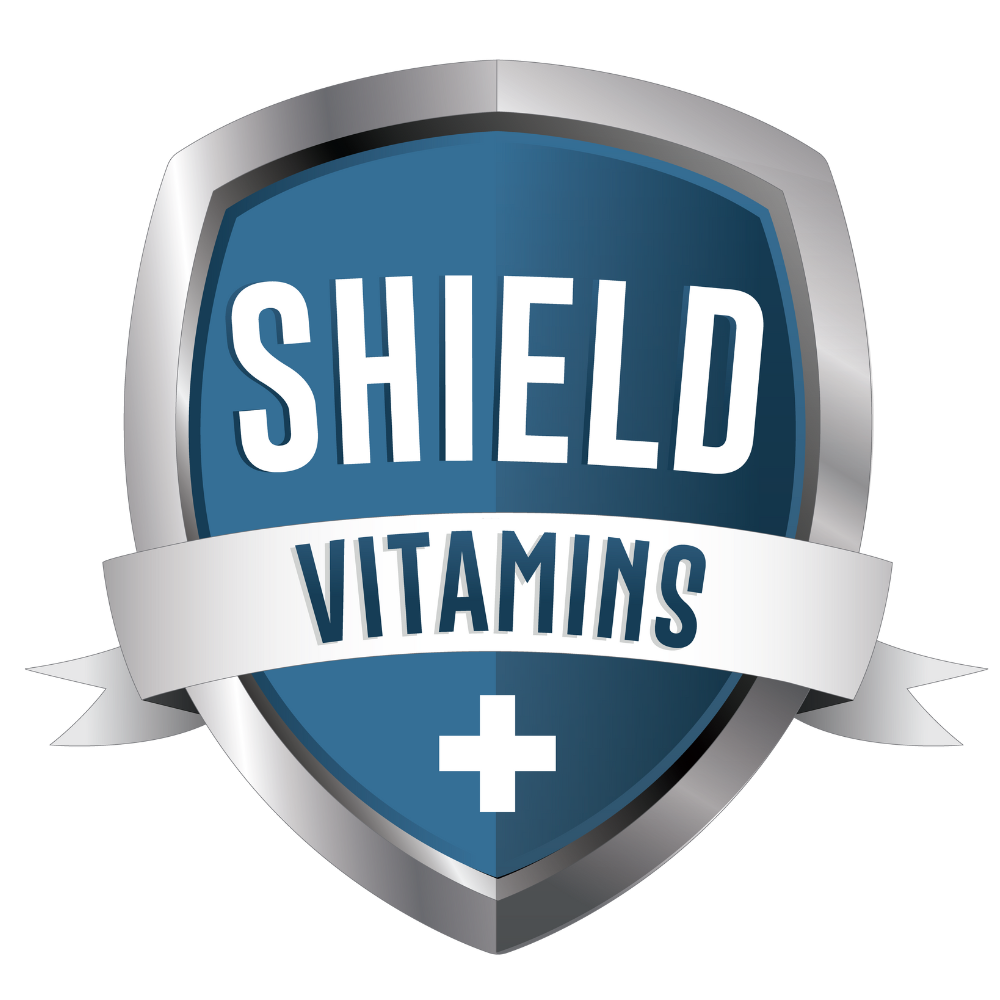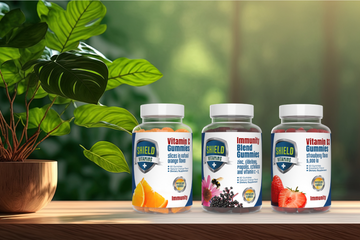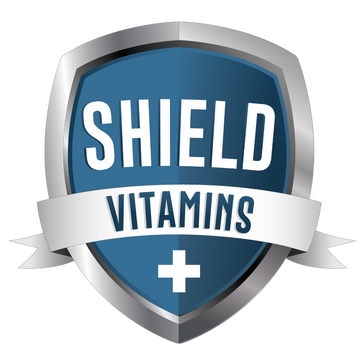ABC is easy as 1-2-3
Vitamins, can’t live without them. They keep us vibrant and thriving. And they’re not just for your skin or hair, as many of us use them. Studies have shown that some vitamins can even help you live longer too. So get ready with me as we take our journey through this blog on what vitamins there are to love.
What are Vitamins?
Vitamins are micronutrients found in food and supplements essential for the body to carry out a range of daily functions. Micronutrients are the foundation of good health! They help keep our bodies functioning correctly by providing essential nutrients. Deficiencies can lead to physical appearance and fertility, mental clarity/cognition (such as memory loss), inflammation, or infection. So we must get enough vitamins and minerals daily.
There are two broad categories of vitamins: Fat-soluble and water-soluble.
Water-soluble vitamins
Water-soluble vitamins travel freely through the body, and excess amounts usually are excreted by the kidneys. The body needs water-soluble vitamins in frequent, small doses. These vitamins rarely reach toxic levels because the kidneys constantly excrete them. In other words, water-soluble vitamins dissolve in water before they can be absorbed by the body and therefore cannot be stored. A few Water-soluble vitamins include vitamin C and B-complex vitamins, such as vitamin B6, vitamin B12, and folate.
Fat-soluble vitamins
Fat-soluble vitamins include vitamins D, A, K, and E. Fat-soluble vitamins are stored in the body's cells and do not readily pass through the system as water-soluble vitamins do. Although adequate amounts are necessary, these vitamins are not consumed as frequently as water-soluble vitamins. An excessive amount of fat-soluble vitamins can be toxic. Most people get enough fat-soluble vitamins from a balanced diet.
What are Minerals?
Minerals are inorganic elements in soil and water, absorbed by plants or consumed by animals. Most are familiar with calcium, sodium, and potassium. However, many other minerals, including trace minerals like copper, iodine, and zinc, are needed in minimal amounts.
There are currently 13 recognized essential vitamins that you need to stay healthy, vibrant, and well… alive. In A-Z order: Let's go from absorption into action by looking at the benefits of each vitamin and mineral individually.
Vitamin A
One type of Vitamin A comes from animal sources of food. It helps you see at night, make red blood cells, and fight off infections. The other type is in plant foods, and it helps prevent cell damage and age-related macular degeneration. However, too much Vitamin A can hurt your liver. Eat orange veggies and fruits like sweet potato and cantaloupe, spinach and other greens, dairy foods, and seafood such as shrimp and salmon.
Those with a Vitamin A deficiency are at an increased risk of acquiring a severe infection. One of the critical warning signs of a Vitamin A deficiency is night blindness in adults. Another severe symptom includes Keratinization of the skin and the mucous membranes in the respiratory, gastrointestinal, and urinary tracts.
Vitamin B1 (Thiamine)
The first of the b-complex family, B1, helps your body turn food into energy. It is also crucial for the structure of brain cells. Legumes, like black beans and lentils, and seeds are the go-to sources for B1. Pork and whole grains are also great options when adding more of this vitamin to your diet. Most people get enough thiamin from the foods they eat, but pregnant and breastfeeding women need a little more.
True thiamine deficiency is rare among healthy individuals with adequate access to thiamine-rich foods. However, not getting enough thiamine can lead to thiamine deficiency, which can happen in as little as three weeks and affect your heart, nervous system, and immune system. Early symptoms of thiamin deficiency are vague but can include fatigue, irritability, poor memory, loss of appetite, sleep disturbances, abdominal discomfort, and weight loss.
Vitamin B2 (Riboflavin)
Riboflavin, also known as Vitamin B2, is essential to cell growth, function, and development in your body. You could get enough Riboflavin for the entire day just from a good breakfast! It is added to many fortified breads and grain products and is also found naturally in eggs, asparagus and other green veggies, and milk. Your cells need it to work right, and it might help prevent migraines.
Riboflavin deficiency is extremely rare in the United States. Still, symptoms of riboflavin deficiency include skin disorders, lesions at the corners of the mouth, swollen and cracked lips, hair loss, and reproductive problems. People with riboflavin deficiency typically have other nutrient deficiencies, so some of these signs and symptoms might reflect these other issues.
Vitamin B3 (Niacin)
Niacin is a family of compounds that your body needs to turn food into energy and store it. It also helps protect your skin and tissues and improve your cholesterol levels. Three ounces of canned tuna has all you will need in a day. Or serve up some chicken, turkey, salmon, or other lean meats. You can eat cremini mushrooms, peanuts, and peanut butter if you are vegan.
One form of niacin deficiency results from a lack of niacin and tryptophan (an amino acid). This form causes pellagra disorder, which affects the skin, digestive tract, and brain. Typically, people with pellagra develop an asymmetric, dark red rash that resembles a sunburn and becomes worse when exposed to sunlight; a condition called photosensitivity.
Vitamin B6
This vitamin plays a role in more than one hundred different reactions in your body. Some research has shown that B6 may help protect against memory loss, colorectal cancer, and PMS. In addition to leafy and root vegetables, B6 can also be found in non-citrus fruits such as bananas, avocados, watermelon; legumes; and fish, poultry, and lean meat.
Serious B6 deficiencies rarely happen, though when they do, kidney disease and other conditions that keep your small intestine from taking in nutrients can be culprits. Vitamin B6 deficiency can cause skin inflammation (dermatitis) and a red, greasy, scaly rash in adults. Hands and feet may feel numb or have a “pins and needles” feeling, and the tongue may become sore and red.
Vitamin B12
B12 helps your body break down food for energy. Some athletes and trainers take supplements before workouts, but these do not boost your success if you get enough in your meals. Rev up before hitting the gym with a snack like a hard-boiled egg or fortified cereal.
Those most at risk for a Vitamin B12 deficiency are vegans, people with intestinal problems that limit vitamin absorption, aging adults, and those taking long-term heartburn medication. Symptoms of Vitamin B12 deficiency are like those of anemia, including weakness, pale skin, shortness of breath, and mood changes.
Vitamin C
We’re all familiar with this one, and we all picture orange juice, even though oranges hold the least amount of Vitamin C. Your body also needs Vitamin C to help your bones, skin, and muscles grow. You can get plenty by including bell peppers, papaya, strawberries, broccoli, cantaloupe, leafy greens, and other fruits and veggies in your diet.
A Vitamin C deficiency's most known effect is scurvy, a fatal-if-untreated disease that causes inflamed and bleeding gums, easy bruising, weakness, fatigue, rashes, and difficulty healing wounds. While scurvy is uncommon today, proper Vitamin C intake is crucial for optimal health, as Vitamin C regulates collagen production.
Calcium
You need to start saying calci-yum and incorporate more into your diet from now on. This mineral helps concrete harden, so think of the strength that makes up the building block for your bones and teeth. It is also crucial to make muscles move, including your heart. Get calcium from milk, cheese, yogurt, other dairy foods, and green vegetables like kale and broccoli.
Nearly 70% of Americans fail to meet the recommended daily intake for calcium due to either inadequate intake of calcium-rich foods or poor absorption. Additionally, caffeinated beverages, alcohol, soda, dark leafy greens, beans, and whole grains can decrease the body's absorption of calcium. Calcium deficiencies can affect all body parts, resulting in weak nails, slower hair growth, and fragile, thin skin.
Chromium
Chromium is a trace element found in many kinds of food, and you only need a small amount of this mineral to keep your blood sugar levels steady. Most adults quickly get enough by eating broccoli, English muffins, and garlic. Studies show that chromium plays a vital role in blood sugar regulation, brain function, and breaking down fats and carbohydrates.
Chromium deficiency is a widespread problem, and many people, such as athletes, people with diabetes, and pregnant women, are especially at risk of chromium deficiency. Symptoms may include weight loss, confusion, impaired coordination, and a reduced sugar response in the blood, increasing the risk of diabetes. Treatment of chromium deficiency may involve chromium supplements.
Vitamin D
Like calcium, Vitamin D keeps your bones strong and helps your nerves carry messages. It also plays a role in fighting germs and several other essential roles for overall health, including cardiovascular health, testosterone, and immune function. Sometimes called the “sunshine vitamin,” 10 to 15 minutes on a bright day without sunscreen is the best source to soak up your vitamins. You can also eat fish or get milk or orange juice with added Vitamin D.
The NIH says that 32% of adults in the United States are Vitamin D deficient. Those with a Vitamin D deficiency have a problem absorbing calcium. Vitamin D deficiency symptoms can include muscle weakness, pain, fatigue, and depression.
Vitamin E
Technically called an antioxidant, Vitamin E protects your cells from damage caused by cigarette smoke, pollution, sunlight, and more. Vitamin E also helps your cells talk to each other and keeps blood moving. Sunflower seeds and nuts are reliable sources, including almonds, hazelnuts, and peanuts. If you are allergic to those, vegetable oils, spinach, and broccoli have Vitamin E, too.
Vitamin E deficiency is extremely rare in humans and tends to be caused by irregular dietary fat absorption or metabolism. Vitamin E deficiency can cause nerve and muscle damage that results in loss of feeling in the arms and legs, loss of body movement control, muscle weakness, and vision problems.
Folic Acid
For moms-to-be, folic acid is necessary. It helps make DNA and prevent spina bifida and other brain congenital disabilities. Asparagus, Brussels sprouts, dark leafy greens, oranges and orange juice, and legumes (beans, peas, and lentils) are rich in folic acid.
Those who do not consume enough fruits and vegetables, or even overcook their veggies, are at the most significant risk of developing a folate deficiency. People who consume excessive amounts of alcohol or take certain medications have an increased risk of developing a folic acid deficiency. Symptoms of a folic acid deficiency are similar to that of anemia. It includes things like fatigue, feeling short of breath, headaches, pale skin, racing heart, weight loss or not feeling hungry, and ringing in your ears.
Vitamin K
You need Vitamin K for blood clotting and healthy bones. People who take warfarin, a blood-thinner, must be careful about what they eat because Vitamin K stops the drug from working. A serving of leafy greens, like spinach, kale, or broccoli, will give you more than enough K for the day.
Vitamin K deficiency is rare in adults because many of the foods we eat contain adequate amounts of K1, and the body makes its own K2. Plus, the body is good at recycling its existing supply of Vitamin K. However, certain conditions and some drugs can interfere with Vitamin K absorption and creation, making it possible to become deficient. This type of deficiency is much more common in infants and occurs in a condition called VKDB for Vitamin K deficiency bleeding.
Iodine
Your thyroid uses iodine to make hormones that control metabolism. Iodine is found in animal and sea proteins like chicken, beef liver, fish, and shellfish. Mothers can ensure their child receives the right amount of Iodine by using fortified formula when feeding.
The first deficiency symptom is usually a goiter, a lump in your neck caused by an enlarged thyroid gland. It is rare in the U.S., mainly because iodine is added to table salt. Too much iodine can be harmful, though, and supplements interact with some medications.
Iron
Iron is an essential element for blood production. About 70 percent of your body's iron is found in the red blood cells of your blood called hemoglobin and in muscle cells called myoglobin. Hemoglobin is essential for transferring oxygen in your blood from the lungs to the tissues. Myoglobin, in muscle cells, accepts, stores, transports, and releases oxygen. Keep up your levels with beans and lentils, liver, oysters, and spinach. Also, many breakfast cereals have a day's worth added.
Iron deficiencies can occur in multiple ways, such as inadequate consumption of iron-rich foods, poor iron absorption, or iron loss through excess blood loss or during developmental stages in life such as adolescence, pregnancy, or breastfeeding. Iron deficiency anemia can cause general fatigue, headaches, dizziness, shortness of breath, muscle weakness, pale skin color, and chest pain.
Magnesium
Another mineral on our list, magnesium, plays an essential role in making your muscles squeeze and keeping your heart beating. It helps control blood sugar and blood pressure, make proteins and DNA, and turn food into energy. You can get magnesium from almonds, cashews, spinach, soybeans, avocado, and whole grains.
Many Americans do not consistently consume adequate magnesium, so it is often recommended as an additional, stand-alone supplement. Symptoms of a magnesium deficiency include muscle cramps, abnormal heart rhythms, unexplained numbness or tingling, and high blood pressure.
Potassium
You may think of bananas, but green leafy veggies are a better source of this mineral. It helps keep your blood pressure in a normal range and helps your kidneys work. Levels too low or too high could make your heart and nervous system shut down. You can snack on raw cantaloupe, carrots, and tomatoes.
Despite its importance, it is estimated that most adults do not meet their daily needs. This is due to the Western-style diet, which favors processed foods over whole plant foods high in potassium. Low potassium is associated with a risk of high blood pressure, heart disease, stroke, arthritis, cancer, digestive disorders, and infertility.
Selenium
Did you know just four Brazil nuts could put you at your daily limit for selenium! It does many things, like fighting off infections and helping your thyroid gland work. Most Americans get enough from what they eat, including meat, bread, and eggs.
Selenium deficiency is rare, but it can get serious if unchecked. People with HIV, cancer, thyroid problems, and dialysis treatments are most likely to be selenium deficiency. It can also be an issue if you live in a part of the world with low selenium soil. Too much can cause brittle nails, nausea, and irritability.
Zinc
Without zinc, you would not be able to taste and smell. Your immune system needs it, and it helps cuts, scrapes, and sores heal. It may help you keep your sight as you age. While you can get zinc from plant sources like sesame and pumpkin seeds, chickpeas, lentils, and cashews, it is easier for your body to absorb it from animal foods, such as oysters, beef, crab, lobster, and pork.
Zinc deficiency is rare in the United States, but it still occurs in some people.
If you are not getting enough zinc in your diet, you may have side effects such as hair loss, lack of alertness, and a reduced sense of taste and smell.
What about multivitamins?
A diet that includes plenty of fruits, vegetables, whole grains, good protein, and healthy fats should provide the most nutrients needed for good health. However, as we know, not everyone consumes a consistently nutritious diet. A day or week of lousy food choices will not do much damage. But when a poor diet leaves your body short on the nutrients it needs for a long time, it will send a sign. You can reverse most of these issues with foods rich in missing nutrients, supplements, or both.
Multivitamins can play an important role when nutritional requirements are not met through diet alone. Even with a healthy diet, achieving an optimal balance of nutrients can be challenging. Supplements containing essential nutrients are available either alone or in multivitamin formulas; your healthcare provider or pharmacist can help you determine the right balance of supplements.
The National Academy of Medicine develops nutrient reference values called the Dietary Reference Intakes (DRIs) for vitamins and minerals. These were created to guide good nutrition and a scientific basis for developing food guidelines in both the U.S. and Canada. The DRIs are specific to age, gender, and life stages and cover more than 40 nutrient substances. The guidelines are based on available reports of the deficiency and toxicity of each nutrient.
Conclusion
Micronutrients are vitamins and minerals needed by the body in tiny amounts. However, their impact on a body's health certainly isn't tiny. Their need is crucial for life, and a deficiency can cause severe and even life-threatening conditions. Micronutrients perform various functions around the body, including producing enzymes, hormones, and other substances needed for average growth and development. Ensure your body stays functioning at its best by maintaining a healthy and colorful nutrient-rich diet. The better we take care of our bodies, the better they’ll take care of us.
If you are experiencing the above symptoms and have ruled out other health conditions, you may be suffering from a nutrient deficiency. Preventing and detecting the most common ones is your first step and can be achieved through monitoring and adjusting your diet, considering dietary supplements, and having a conversation with your healthcare provider.

Sources:
https://www.webmd.com/vitamins-and-supplements/ss/slideshow-vitamins-minerals-overview
https://www.uofmhealth.org/health-library/ta3868
https://www.medicalnewstoday.com/articles/195878#what_are_vitamins
https://www.hsph.harvard.edu/nutritionsource/vitamins/
https://www.webmd.com/diet/ss/slideshow-not-enough-nutrients
https://www.who.int/health-topics/micronutrients#tab=tab_1
https://www.singlecare.com/blog/common-nutrient-deficiencies/
https://www.nih.gov/health-information







